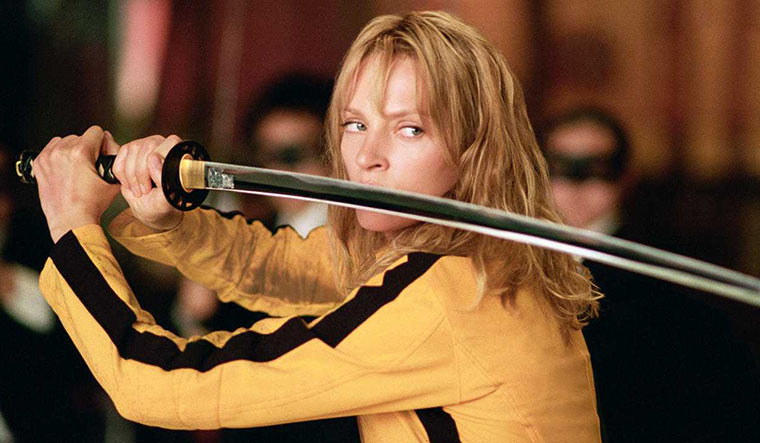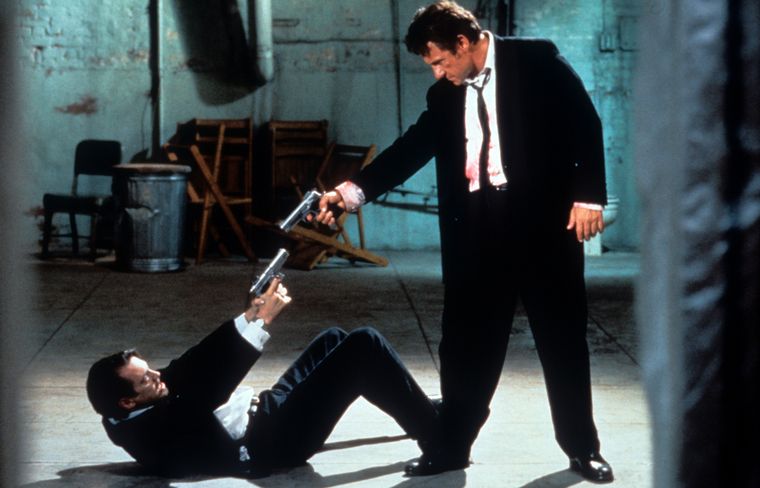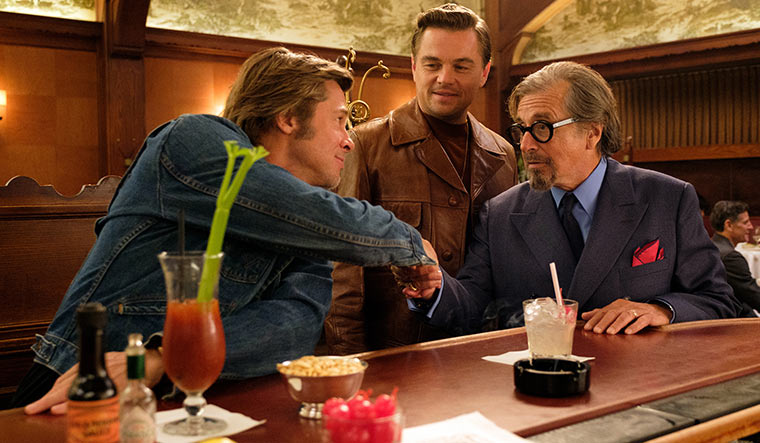Twenty-seven years ago, a caper film by a debut director was screened at the Sundance Film Festival. Reservoir Dogs, the story of a failed heist by curiously named characters who mouth dialogues full of profanity and pop culture references, announced the arrival of a quirky filmmaker. Eight films and an array of awards later, Quentin Tarantino received an extraordinary, seven-minute standing ovation at the Cannes Film Festival for what may be his penultimate movie, Once Upon a Time in Hollywood. He had announced that he may retire after his 10th movie.
He may not be considered one among the cinematic pantheon, but Tarantino is certainly one of the most influential filmmakers of today. His name is evoked every time a movie luxuriates in gratuitous bloodshed, foot fetishism or profanity. Or when a director experiments with the three-act structure. Things that have become signature Tarantino tropes.
Unlike the methodical Kubrick, the character-driven Scorsese, or the masterful Godard, Tarantino did not reach the top of the cinematic summit with films that had great stories or layered characterisation. He achieved stardom by making films inspired by movies of every shade, paying homage even to odd genres (grind house, blackploitation), and consequently fashioned his own cinematic universe.
The universe that he designed is rarely inhabited by real people or incidents, but one that offers him plenty of creative liberties. Red Apple cigarettes and Big Kahuna Burger, fictional brands mentioned in Pulp Fiction, are seen in his later movies. Mia of Pulp Fiction played a deadly assassin in a pilot show and Beatrix of Kill Bill is the deadliest assassin at Bill’s disposal. Vincent Vega (Pulp Fiction) and Vic Vega (Reservoir Dogs) are siblings. It is indeed an alternate universe.
Tarantino broke rules and played around with the three-act structure—the setup may be established only in the second half and confrontation might come when you least expect it. Anime characters are used for storytelling, and dialogues would often veer into absolute banality. Filmmaker Bejoy Nambiar, a self-professed Tarantino fan, says, “Tarantino has a very unique voice. It was like a breath of fresh air when he started putting out his works.... Hollywood was resorting to certain kinds of stereotypes. He brought about a certain change, a very radical one. He has inspired many filmmakers.”
He made tribute and intertextuality an art from. A self-taught filmmaker, Tarantino makes movies not merely because he has a compelling story or an original idea, but because he loves cinema, unconditionally and unabashedly. He is enamoured by the magic of it and his works reflect the movies he loves. “If you just truly love cinema with enough passion, and you really love it, then you cannot help but make a good movie,” he had said. A nudge here, a wink there, an unabashed replication elsewhere—the opening scene of Jackie Brown bears uncanny resemblance to the opening scene of The Graduate. Death Proof is his homage to the car chase flicks of the 1970s. He did not make a movie that was set in the 1970s, but one that looked like it was made in the 70s, with missing frames and mismatched cuts.
His characters are often detestable and bereft of saving grace. Jackie Brown does a whole lot of double-crossing, Hans Landa (Inglourious Basterds) sells his soul and the Fuhrer for the deal of a lifetime, and Jules (Pulp Fiction) quotes the Bible before killing a college kid. Even the moral compass of Reservoir Dogs, Mr. Orange, is not averse to violence. Yet you tend to buy them, because in the Tarantino universe, they are the regular folk who smoke Red Apple cigarettes and eat at Big Kahuna Burger. Yet, unreal as they may be, their conversations are full of details. The anecdotes they recount are vivid and colourful, like the German myth that Dr. Schultz narrates in Django Unchained.
Tarantino does not seem particular about where his plot and characters go. The stick-up artists of Reservoir Dogs are clueless about their next move, accidents dominate the plot of Pulp Fiction and the hateful eight are trigger-happy at the slightest provocation. But there is a certain allure to this mayhem, this absence of plan, this sheer recklessness in defining the intentions of characters. The director had come up with an explanation. “Quentin is not doing the writing. Quentin starts it off. Then the characters take over and Quentin has no control over what they might or might not do,” he had said.
Once Upon a Time in Hollywood is touted to be a tribute to the golden age of Hollywood. The movie is garnering great reviews and is likely to be the biggest hit among Tarantino fanboys.
If he is hanging up his boots soon, it is certainly on a high note!





